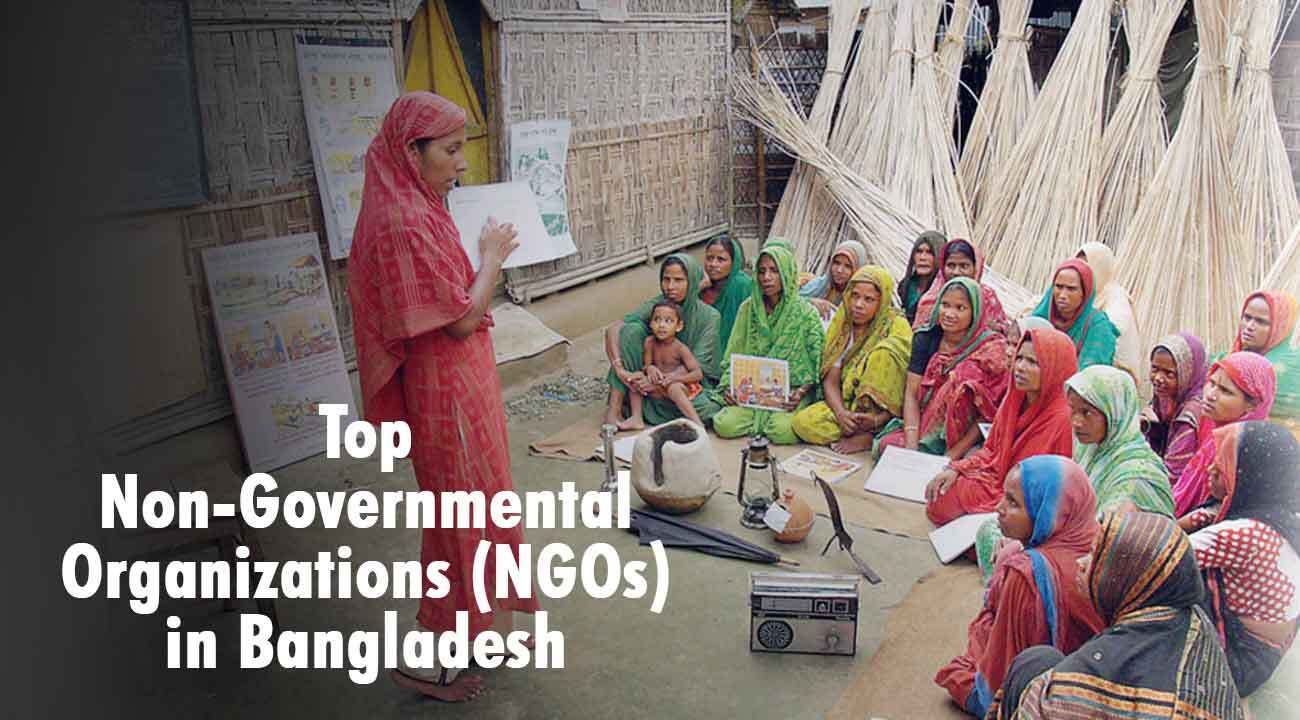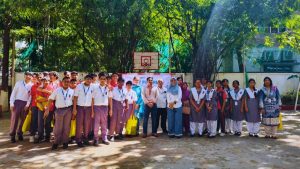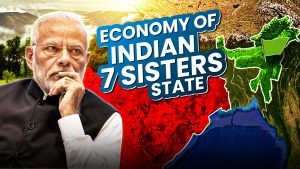Are you aware of the crucial role that non-governmental organizations (NGOs) are playing in the development of Bangladesh? Since gaining independence, NGOs have been actively working towards developing the financial and economic situation of the country’s impoverished communities. These organizations are making a real difference in the lives of those who are struggling to make ends meet.
NGOs, which are also referred to as non-profit organizations or civil societies, operate independently from any national, governmental, community, or international bodies. They are solely focused on providing development-oriented services for the poor rural and urban people of Bangladesh. These NGOs are not driven by profit but rather by their desire to help those in need.
With so many NGOs operating in Bangladesh, there are numerous opportunities to get involved in their efforts to support underprivileged communities. Through their programs, NGOs are raising awareness among the poor rural and urban people about how to improve their financial situations and are educating them so that they can take back control of their lives. In this article, we will talk about the top 10 NGOs in Bangladesh based on their activity, customer support, and contribution to Bangladesh’s society.
List Of The Top Non-Governmental Organizations (NGOs) in Bangladesh
- BRAC
- Caritas
- Care Bangladesh
- ASA Bangladesh
- Shakti Foundation
- Prosika Organization
- BURO Bangladesh
- Oxfam Bangladesh
- Jagorani Chakra Foundation
- Thengamara Mohila Sabuj Sangha (TMSS)
1. BRAC
BRAC, which stands for Bangladesh Rehabilitation Assistance Committee, is an esteemed international development organization based in Bangladesh. The organization was founded in 1972 by Sir Fazle Hasan Abed, who envisioned a world in which all people would have equal access to basic human rights. BRAC is a non-profit organization that has made significant contributions to the development of Bangladesh as well as other countries in Asia, Africa, and even America. Currently, the organization employs nearly 1 lac people, with women making up approximately 70% of the workforce. In 2016, BRAC was recognized as the world’s largest non-governmental development organization, having reached more than 126 million people with its services. BRAC’s initiatives include – The women’s Health Development program, Social Development, Human Rights and Legal Services program, BRAC’s Dairy and Food project, BRAC University, and Non-Formal Primary Education. BRAC’s contributions to Bangladesh and its neighboring countries are extensive, and it continues to be a leading force in providing support and promoting development.
2. Caritas Bangladesh
In 1967, Caritas Bangladesh, a Catholic charitable organization, embarked on its journey towards improving the lives of people when the region was still known as East Pakistan. The organization played a pivotal role in rebuilding the nation after the devastating cyclone of November 1970. At the time, it was known as the Christian Organization for Relief and Rehabilitation (CORR), but later re-introduced itself as Caritas in 1976. Caritas is a Latin word that means – Charity, one of the three theological virtues. Caritas Bangladesh is a non-governmental organization focusing on integrated development, disaster management, and human resource development. Currently, the organization is working tirelessly to implement its programs at both national and international levels. Caritas Bangladesh is involved in more than 90 projects related to six key sectors. These sectors include health & nutrition, education, food security, livelihood, climate change, disaster risk reduction, water & sanitation, and human rights & governance. It should be noted that the organization has branches in all seven continents of the world, reflecting its global reach and impact.
3. Care Bangladesh
CARE is a global organization established in 1945, and has been actively operating in Bangladesh since 1949 with a mission to fight global poverty and marginalization. With a presence in 93 countries, CARE focuses on women empowerment, particularly to aid those who face multiple denials of their rights, by addressing the social, economic, and political factors that contribute to marginalization. In Bangladesh, CARE has been providing disaster relief, school and pre-school facilities, and working on women’s empowerment, civil society strengthening, HIV/AIDS awareness campaigns, and emergency response. CARE has partnerships with 27 companies and is currently implementing 35 projects in partnership with 36 implementing NGOs in Bangladesh. By collaborating with the private sector and working with local organizations, CARE aims to create a sustainable and lasting change in the lives of the communities it serves.
4. ASA Bangladesh
ASA Bangladesh, the Association for Social Advancement, was founded in 1978 by Md. Shafiqual Haque Choudhury, and is a leading non-governmental organization in Bangladesh. With 5.3 million members and 21,477 employees, ASA’s mission is to achieve integrated development through education, mini irrigation, primary health, and credit for income generation, along with raising awareness and group formation for the poor. ASA’s microfinance program started in 1991, has now grown to serve about seven million people in Bangladesh, while its new MSME program for small and medium-sized entrepreneurs, established in 2017, has opened 43 branches across the country. ASA’s work represents a model for effective poverty alleviation and sustainable development, providing access to finance and other resources to empower marginalized communities. Md. Shafiqual Haque Choudhury’s commitment to this cause is evident throughout ASA’s success and impact on poverty in Bangladesh.
5. Shakti Foundation
The Shakti Foundation is a non-government organization that has been dedicated to improving the economic and social status of women in Bangladesh since 1992. They are operating in 54 districts of the country with the goal to eradicate poverty and stabilize the social status of underprivileged women, and are also providing microcredit services to nearly 5 lac people. The Foundation’s services are aimed towards achieving the socio-economic development of women through poverty reduction and gender equality. The NGO’s programs are run in both rural and urban areas, focusing on microfinance, agriculture, health, and solar lighting. The Foundation is committed to empowering women to establish their own businesses and providing them with the resources needed to lift themselves out of poverty. The Foundation has been certified under the Microcredit Regulatory Authority Act in 2007, enabling them to continue their vital work. Shakti Foundation is a valuable resource for women throughout Bangladesh, and they will continue to work towards improving their lives in the years to come.
6. Proshika Organization
The Proshika Organization was established in 1976 with the singular goal of promoting economic self-reliance in Bangladesh. Dr. Qazi Faruque Ahmed, who currently serves as Proshika’s Chairman and founder, has led the organization towards success by focusing on key areas of agriculture, forestry, health education, disaster preparedness, advocacy, and literacy. The name “Proshika” is derived from three Bangla words – Proshikkhon (training), Shikkha (education), and Kaj (action) – which embody the organization’s values and mission. Proshika has made tremendous progress since its inception, forming approximately 160 thousand primary groups, with 98 thousand dedicated to women and 52 thousand dedicated to men. The organization has also established 26,500 village and slum federations, 2,300 union/ward federations, and 26 thana/upazila (sub-district) federations. These efforts have enabled Proshika to make a positive impact on communities across Bangladesh, and they remain steadfast in their commitment to promoting economic self-reliance and improving the lives of those they serve.
7. BURO Bangladesh
In the year 1990, BURO Bangladesh Organization was established with the aim of reducing poverty on a sustainable basis, particularly for the poor. Over the years, BURO has developed six loan products, including a specialized product for small and medium-sized enterprise clients, as well as two savings products and an insurance scheme, to cater to the ever-growing financial requirements of their clientele. The organization’s primary focus is on low-income individuals, particularly women, who are regarded as the primary consumers of microfinance institutions. BURO is renowned for its ability to offer high-quality, flexible financial services to its clients. As a result, the organization has reached several notable milestones of success and has also achieved financial sustainability.
8. Oxfam Bangladesh
Started in 1942, Oxfam is an international non-governmental organization that has been involved in various development activities in Bangladesh since 1970, providing assistance to the victims of a devastating cyclone and supporting the people of Bangladesh during the 1971 Liberation War. In 2012, Oxfam was distinguished as one of the only three organizations recognized as a Friend of the Bangladesh Liberation War. The organization’s overarching objective is to foster a dynamic and equitable society across Bangladesh, in which both men and women are empowered to jointly exercise leadership and good governance, thereby building resilient communities. Oxfam collaborates with a diverse group of partners, including civil society organizations, NGOs, media organizations, foreign and domestic universities, private sector firms, and various levels of government. Oxfam acknowledges that, in order to make a significant impact on poverty and inequality, partnering with international and local civil society organizations is critical for increasing impact at scale and bringing about transformative social change.
9. Jagorani Chakra Foundation (JCF)
Established in 1976, a group of visionary youths from Jessore were inspired to improve the lives of the poor people of the country, giving rise to what is now known as the Jagorani Chakra Foundation. The organization aimed to identify social and economic problems faced by individuals, and began implementing solutions to combat them. JCF obtained registration in 1977, according to the Directories of Social Welfare. The Executive Director of this non-governmental organization is Md. Azadul Kabir Arzoo. JCF is committed to its mission of alleviating poverty and improving the lives of the less fortunate. To this end, JCF operates an education center for children from low-income families. They also provide a range of services, including literacy programs, to empower individuals and promote self-sufficiency. JCF remains dedicated to its cause and strives to make a positive impact on society. Their efforts have been instrumental in improving the lives of the less privileged, and they continue to be a beacon of hope for those in need.
10. Thengamara Mohila Sabuj Sangha (TMSS)
Thengamara Mohila Sabuj Sangha (TMSS) is a social welfare organization that was established in 1964 under the indigenous title ‘Thengamara Sabuj Sangha (TSS)’ in the village of Thengamara, under the Sadar Upazila of Bogura District with the approval of the Department of Social Welfare. However, during the Liberation war of Bangladesh, all the documents of TSS were burnt, and the organization was forced to halt its operations. In 1980, the NGO authority declared their inability and incapability to continue running the organization. As a result, they decided to legally hand over the organization to Prof. Dr. Hosne Ara Begum, giving her full authority to manage the NGO. She reformed TSS as TMSS by incorporating the Bengali term ‘Mohila,’ keeping in mind the development of women and got it approved by the decision of the majority members of the board. Thus, TMSS was born, and it has been serving the people of Bangladesh for several decades now. Currently, the organization has more than 36,000 workers who have been working tirelessly to promote social and economic development, especially for women, in the rural areas of the country.










Leave a Comment